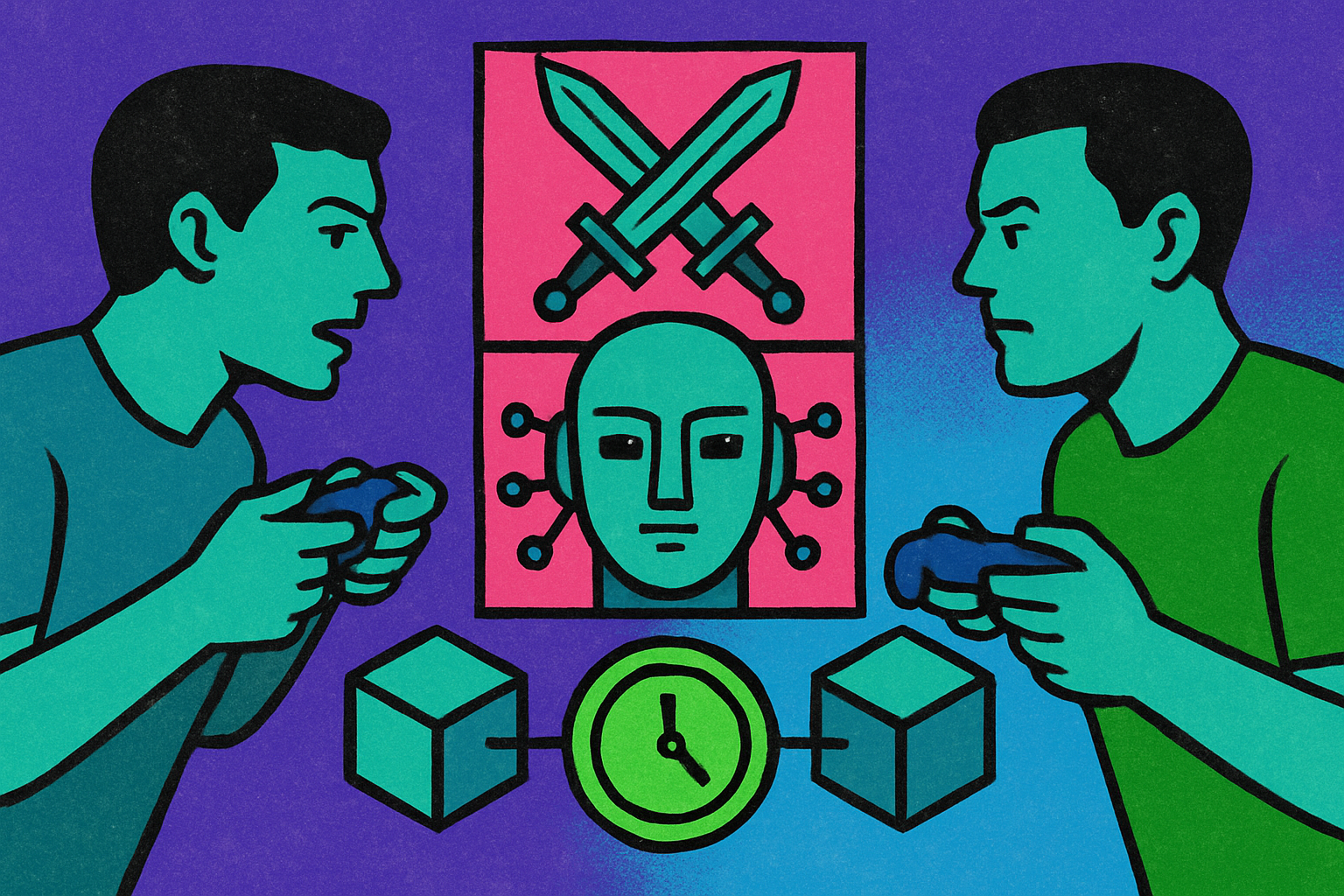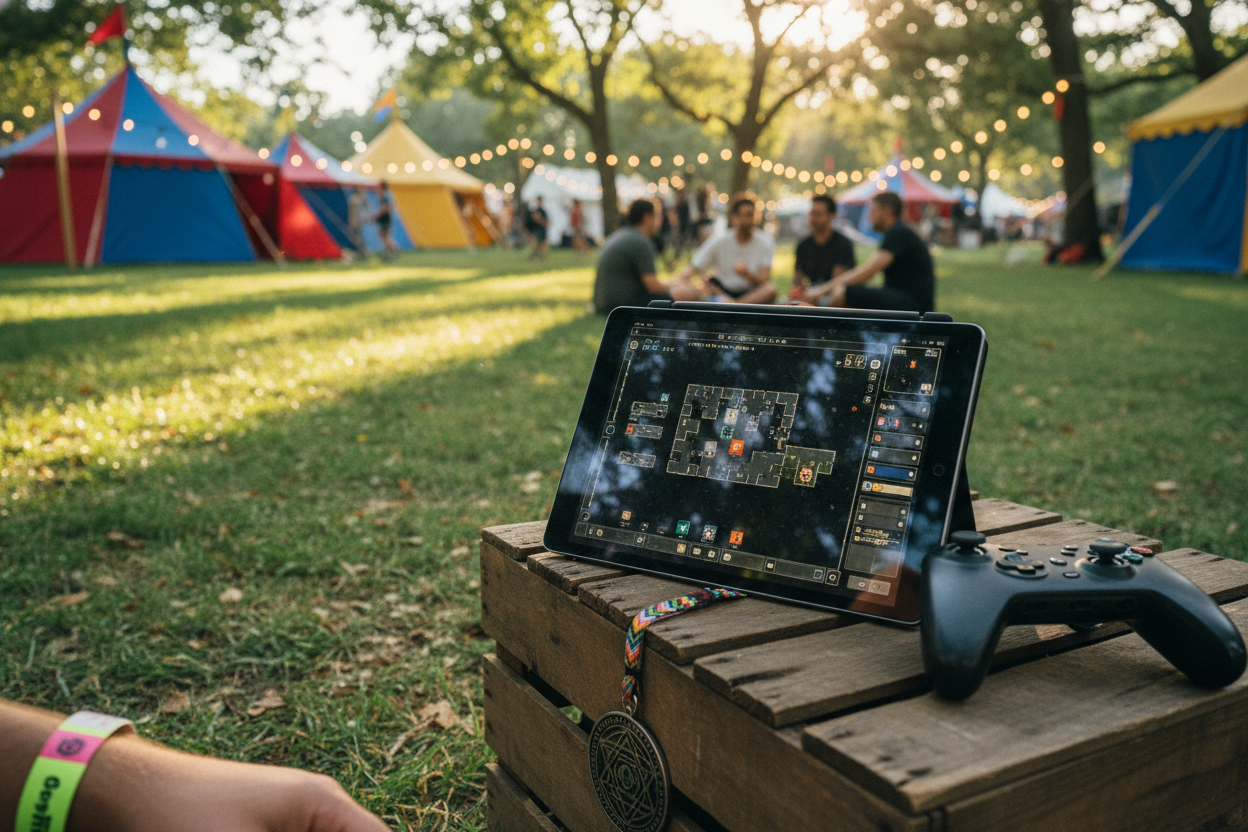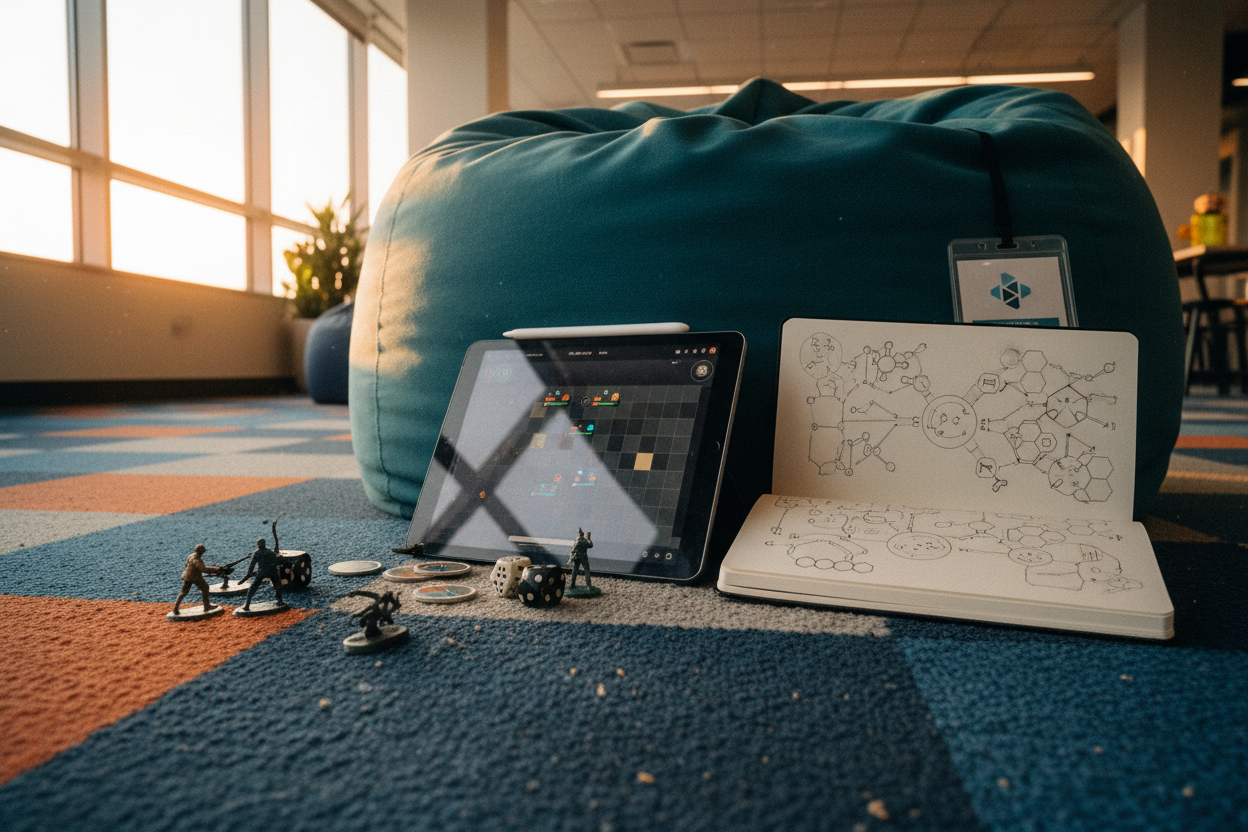How Real-Time PvP and AI Are Transforming Fully On-Chain Games in 2025

In 2025, fully on-chain games are undergoing a dramatic transformation, driven by the convergence of real-time player-versus-player (PvP) mechanics and advanced artificial intelligence (AI). This evolution is not only redefining what’s possible in blockchain gaming but is also setting new expectations for both players and developers. The dawn of modular AI operating systems, such as 0G AI, and the emergence of rich gaming ecosystems like KULT Games are catalyzing an era where gameplay is more dynamic, responsive, and immersive than ever before.
![]()
Real-Time PvP: Raising the Bar for On-Chain Interactivity
The introduction of real-time PvP into fully on-chain games has fundamentally shifted player engagement. Unlike earlier blockchain games that relied on turn-based or asynchronous mechanics due to network latency and scalability challenges, today’s platforms leverage innovations in modular blockchain infrastructure to deliver instantaneous interactions. For example, Snaky Cat, launched in February 2025, enables hundreds of players to compete simultaneously in battle royale arenas. Players control snake-like cats that grow by collecting items and outmaneuvering opponents – all actions are processed transparently on-chain.
This leap forward is powered by chains like 0G Labs’ modular Layer 1, which solves historic bottlenecks around cost, data availability, and latency. The result? Real-time PvP experiences that were once exclusive to Web2 titles are now possible within decentralized environments. Players can expect fairer matches, provable outcomes, and persistent cross-title progression – all secured by the blockchain.
The AI Modular Stack: Powering Next-Gen Blockchain Gaming
Parallel to advances in PvP mechanics is the rapid adoption of AI-driven systems across leading on-chain titles. With projects like 0G AI positioning themselves as infinitely scalable operating systems for decentralized applications, game developers now have access to composable AI modules that can be deployed directly on-chain. This unlocks several critical innovations:
- Adaptive NPCs: Non-player characters respond intelligently to player actions, creating emergent gameplay scenarios.
- Dynamically Balanced Arenas: AI algorithms adjust difficulty levels or spawn rates in real time based on aggregate player performance.
- Evolving Game Worlds: Environments shift organically as AI tracks player behaviors across multiple sessions or even different games within an ecosystem like KULT Games.
A standout case is seen in upcoming titles such as Phantom Blade Zero, where collective AI enables enemies to act as coordinated units rather than isolated bots. This creates a more challenging and authentic combat experience that keeps players engaged over longer periods – a crucial factor for both retention and monetization in play-to-earn economies.
KULT Games and The Rise of Cross-Title Progression
No discussion about fully on-chain game innovation in 2025 would be complete without examining the role of flagship ecosystems like KULT Games from 0G Labs. Designed as a browser-based portal offering everything from AA shooters to hyper-casual viral hits, KULT leverages both the modularity of its underlying chain and the intelligence of integrated AI stacks. One browser unlocks endless worlds – each with persistent assets and achievements tracked across titles via smart contracts.
This cross-title progression model not only enhances user stickiness but also empowers players with true digital ownership. Items earned or purchased in one game can be seamlessly utilized or traded within another title inside the ecosystem. Such interoperability is set to become a benchmark feature for future blockchain games looking to attract mainstream audiences while delivering genuine utility for their native tokens.
As these innovations take hold, the boundaries between genres, platforms, and even player skill ceilings are dissolving. The modular AI stack within ecosystems like KULT Games is enabling developers to experiment with new forms of gameplay and social interaction. For example, SocialFi mechanics, where player reputation and collaborative strategies impact both in-game outcomes and token rewards, are now being woven directly into the core loop of on-chain PvP titles. This not only encourages deeper community engagement but opens up new economic opportunities for early adopters and creators alike.
Moreover, with 0G Labs providing decentralized storage and frictionless data availability, games can now support persistent worlds that evolve based on collective player actions. Imagine a shooter where the map changes as a result of previous battles, or a strategy game where alliances formed in one session influence the political landscape in another. These are no longer theoretical; they’re actively being deployed in 2025’s most ambitious projects.
Security, Privacy, and Fair Play: The New Pillars
The shift toward real-time PvP on-chain games also brings renewed focus to security and fairness. With every action recorded transparently on-chain, cheating is dramatically reduced compared to legacy multiplayer models. In addition, privacy-preserving mechanisms built into modular AI chains ensure that sensitive player data remains secure without sacrificing gameplay quality or speed.
Developers are leveraging zero-knowledge proofs and advanced cryptographic techniques to validate moves instantly while maintaining trustless environments. This means players can compete knowing their assets, and their reputations, are protected by code rather than opaque centralized servers.
What’s Next for Fully On-Chain Game Innovation?
The pace of change in blockchain gaming shows no signs of slowing as we close out 2025. The convergence of real-time PvP mechanics with composable AI modules is setting the stage for even more disruptive features: from self-balancing economies powered by autonomous agents to cross-game tournaments with provable randomness and dynamic rewards.
For investors and enthusiasts watching this space, it’s critical to track ecosystems like KULT Games and platforms powered by 0G Labs’ modular infrastructure. These projects are not only pushing technical boundaries but also reimagining what it means to own, play, and profit within digital worlds.
The fully on-chain revolution is here, and it’s being shaped by the relentless pursuit of instant interaction, adaptive intelligence, and true digital ownership. As these trends continue into 2026 and beyond, expect the lines between game developer and player to blur even further as communities co-create the next generation of decentralized experiences.







